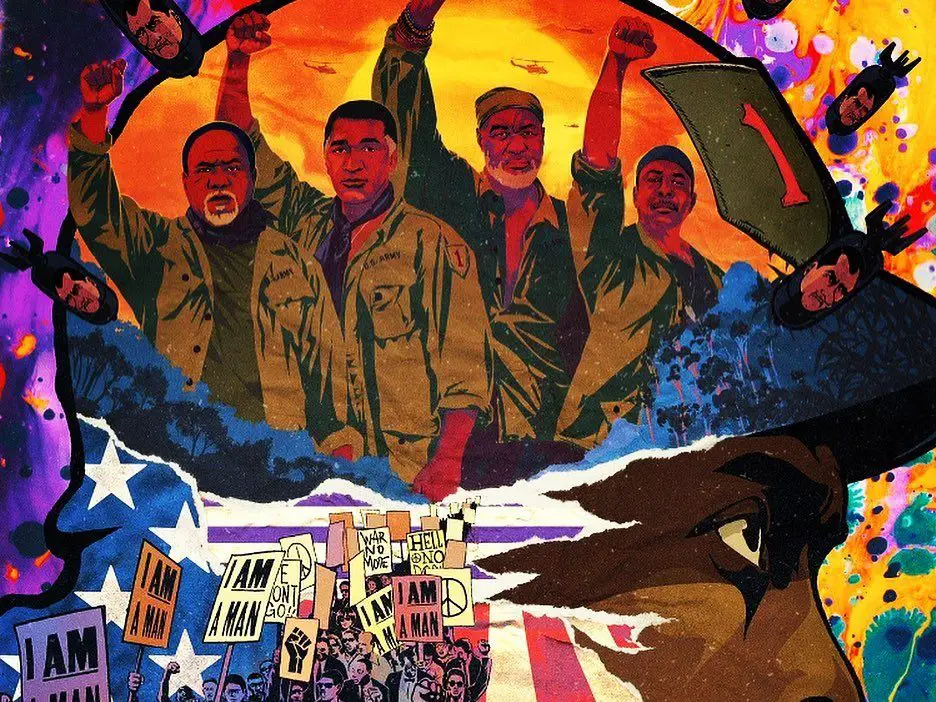My introduction to Spike Lee was not through film. I first saw him on TV, sitting courtside at Madison Square Garden, wearing thick-framed glasses and a smattered collage of Knicks gear. This was Spike Lee the basketball fan. Movies and basketball were, and are, two things very dear to my heart and Spike Lee seemed to sit right in the overlap of that Venn diagram (This would eventually lead to Lee’s admittedly rough contribution to the NBA 2K franchise, for which I’m willing to forgive him). However, I didn’t see one of his films until a couple of years later, when I caught the middle third of “Inside Man” on cable.
“Inside Man” serves as a brilliantly unpredictable bank heist thriller, while hinting at the role of genocide in our capitalist institutions and the inherently convoluted methods of the police force. While the film is first and foremost an action-thriller, it still includes the kind of stories that Lee tells best. It features short bursts of social commentary regarding race and class struggle and feels spiritually linked to the city of New York. But these themes were best explored in Lee’s magnum opus, 1989’s “Do the Right Thing.”
With “Do the Right Thing,” I was introduced to a different Spike Lee: the calculated and stylistically gifted commentator on race relations in America. “Do the Right Thing” oozes with both style and angst, painting a vibrant portrait of Bed-Stuy in the 1980s that depicts Black rage in a way that is rarely present in film.
Despite being made over three decades ago, “Do the Right Thing” still feels incredibly prescient to this moment and provides some answers to questions the world is still asking. The strained race relations and oppressive heat of the summer day contextualizes the frustration and anxiety that pervades the country. After the unlawful killing of a young Black man by the police, the film’s climactic riot relegitimizes the militancy that is necessary to liberate a group of people. The lines between right and wrong are intentionally blurry, perhaps to emphasize the need to restructure our definitions of those concepts and question how they hold up an unjust social framework.
If “Do the Right Thing” is about contextualizing rage, “Da 5 Bloods” is about grief and lasting pain. Lee’s latest film is a meditation on the casualties of war and the wounds that never heal. “Da 5 Bloods” follows four Black Vietnam War veterans who have returned to Vietnam in search of their fallen squad leader’s remains and lost gold that was found and left behind during the war.
The history of Black veterans in America is a complicated one, especially of those that fought in Vietnam. The Vietnam War came at a time when America was confronting its oppression of Black people like never before. The likes of Martin Luther King, Malcolm X, Angela Davis and the Black Panther Party laid racism bare on a public stage. Meanwhile Black Americans were marching to the front lines of a war that did not concern them, to fight for liberties that they didn’t have. The film mentions that, at the time, Black people only made up 11% of the U.S. population but made up 30% of the fighting effort. In addition, the military rarely promoted Black soldiers to any level of high command and positioned them in vulnerable areas.
The titular “Bloods” are men who have no rights or honor that the harbingers of war continually promise as motivation for violence overseas. Sorrow and ghosts of the past haunt them. As its protagonists embark on a journey through Vietnam, “Da 5 Bloods” explores who faces the consequences of war and how imperialism delegates blame between its victims.
When I wasn’t being gutted by the film’s absolutely chilling performance of Delroy Lindo, I found myself drawn in by the cutaways to real footage of civil rights leaders and soldiers. Lee has always had an affinity for history in his films, and he seems keen to make this a teaching moment. This sometimes comes to the detriment of the script with lines that sound eager to make their argument, but ultimately its dedication to representing the history and grief of Black veterans serves “Da 5 Bloods.”
While watching “Da 5 Bloods” and revisiting Lee’s earlier work, I thought of bell hooks’ words on Malcolm X, in her book “Killing Rage: Ending Racism.” Lee weaves the voices of Malcolm X and Martin Luther King in the fabric of both “Da 5 Bloods” and “Do the Right Thing.” Both men were invaluable leaders of social change, but when their work is taught to us in history class, if it is even taught at all, it is clear that there is an agenda at play.
“Significantly, contemporary reinterpretations and critiques of Malcolm X seek to redefine him in a manner that strips him of rage as though this were his greatest flaw,” says hooks. “Yet his rage for justice clearly pushed him towards greater and greater awareness. It pushed him to change. He is an example of how we can use rage to empower. It is tragic to see his image recouped to condone mindless anger and violence in black life.” The way that those in power have distorted Malcolm X over time feels very similar to the treatment of Black revolutionaries’ voices today. The “real” Malcolm X that bell hooks describes is the one from “Do the Right Thing,” and the film serves as a powerful lesson for anyone who has learned a tainted version of what it means to be Black and angry in America.
In a time when right-wing activists choose to reduce nationwide rioting and protests to an “orgy of violence,” filmmakers like Lee feel especially important. “Da 5 Bloods” does not have the same level of mastery as Lee’s 1989 classic, but it provides the same understanding with a valuable commentary on the stories that the writers of history allow to be told. Spike Lee is still trying to probe difficult questions, usually without providing an answer. Lee’s importance as a director has stood the test of time because his work is comfortable exploring grey areas, all while providing empathy to situations that America is still trying to understand.
















